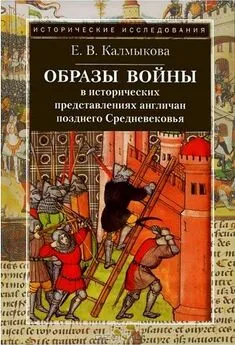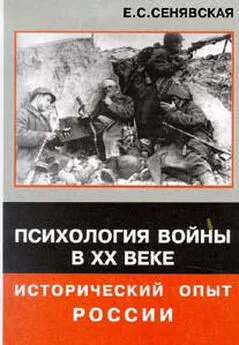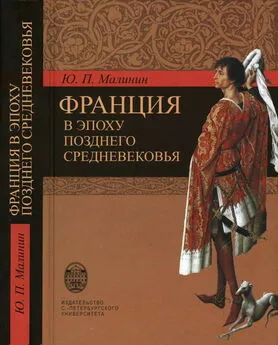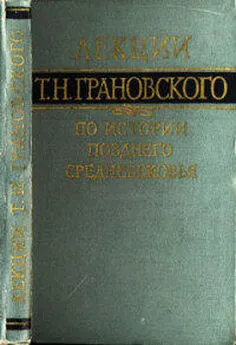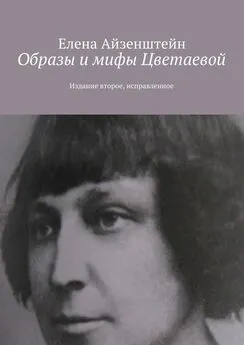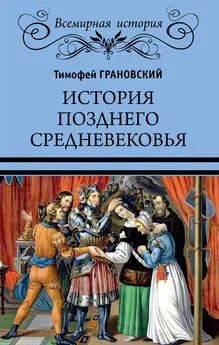Елена Калмыкова - Образы войны в исторических представлениях англичан позднего Средневековья
- Название:Образы войны в исторических представлениях англичан позднего Средневековья
- Автор:
- Жанр:
- Издательство:Квадрига
- Год:2010
- Город:Москва
- ISBN:978-5-91791-012-3
- Рейтинг:
- Избранное:Добавить в избранное
-
Отзывы:
-
Ваша оценка:
Елена Калмыкова - Образы войны в исторических представлениях англичан позднего Средневековья краткое содержание
Образы войны в исторических представлениях англичан позднего Средневековья - читать онлайн бесплатно полную версию (весь текст целиком)
Интервал:
Закладка:
The measures undertaken by the royal administration had quite an effective impact on popular awareness, forming a patriotic attitude to England's wars. While I do not attribute a conscious desire to inculcate beliefs of national superiority to medieval monarchs and their "ideologists", I would argue that such beliefs came about as an indirect consequence of propaganda which had in fact been aimed at the achievement of quite specific goals: gathering of surtaxes, organization of border defences, recruitment of mercenaries, etc. Some elements of that propaganda, in particular collective prayers for the success of royal armies, and the streamlined system of dissemination of information through newsletters and proclamations, promoted the perception of war as a matter of the sovereign's honour by all subjects of English crown. Being obliged to support him as true vassals and true Christians, they were thus led to develop feelings of personal participation and individual interest in the successful end of the conflict.
Official propaganda not only engendered pride in feats of one's countrymen in English society, but also inspired fear of the enemy threatening to invade England itself and plotting enslavement of its population. It is necessary to note that the patriotic rhetoric urging the people to join in the struggle with the enemy and even accept death for the defence of the motherland (pro patria mori), testifies not only to the durability of ancient topoi, but also to a well-developed national consciousness. Following the authors of royal proclamations and engaged by authorised preachers, English chroniclers too worked at the "proper" image of the enemy. Comparing fellow-countrymen and "others" (who in times of war turned from strangers into enemies), historians inevitably placed the representatives of the conflicting sides at the opposite ends of the "scales" of mental and ethical and even physical parameters.
Naturally, the principal characters of medieval historical narration were sovereigns. Medieval authors were certainly quite far from creating "complex" depictions of historical heroes whose characteristic features, deeds and behaviours would all interconnect logically; nevertheless, it is still possible to mark out several key parameters distinguishing a good sovereign from a bad one. Perhaps the most important requirement for each monarch (who occupied the throne by the grace of God and for protection of the people from external danger and lawlessness) was the virtue of justice. In English medieval chroniclers' view, hostile sovereigns lacking in this virtue not only usurped thrones, impiously ignoring the will of God, but also egoistically tyrannised their own subjects. The absence of justice and piety generated hypocrisy, insidiousness, cruelty and other vices. On the contrary, guided by the quest for supreme justice, the pious English kings showed truthfulness, mercy and other positive qualities.
If justice was the central trait in the descriptions of those in power, above all the monarchs, then the defining positive quality of the subjects was, beyond any doubt, fidelity. It is important to note that during the period under discussion, subjects' fidelity was gradually depersonalised, emphasizing devotion less to the person of the king and more to the kingdom as a whole. All other evaluative parameters coincided with characteristic features of sovereigns and were assumed to be positive for one's own countrymen and negative for the "others". Thus, the typical representative of "our" community possessed a certain specific set of virtues, and the typical enemy a corresponding set of vices and weaknesses.
If official royal propaganda appealed first of all to vassal fidelity and patriotism, then "public opinion" was more guided by the private interests and individual expectations of the population. It is reasonable that, for each of participant of any war, there would be various individual motives causing them to take up arms. Representatives of all social strata without exception must have had a personal stake if they were to endure the hardships of war for years. The range of these private motives was wide enough: from aspirations to personal glory or fear of losing one's knightly honour, to materialistic desires to build up wealth by plundering enemy territory. This last circumstance particularly concerned the conflict with France, for during the period of the Hundred Years' War in English society the idea steadily developed that wars in France promised material welfare and prosperity to each Englishman individually and to the English kingdom as a whole. Already during the first stage of the war, the myth of successful commoners who gained not only martial honour and glory, but also titles and wealth through fighting, had arisen in the English society and become rather popular. As chroniclers testified, in the 14lh and 15lh centuries many young people in England dreamed of imitating the careers of glorified mercenaries and famous brigands. Even noble knights seeking fame did not forget about the lucre they could acquire in a successful campaign. Statutes and historical writings demonstrate that all strata of society were interested in ransom for captives, from peasants to kings. According to French sources, soldiers of the English garrison regularly kidnapped men and women and held them captives for the purpose of obtaining ransom. Pillaging and murder tended to be considered as crimes only when towards one's own country and in peacetime. Beyond the borders of the kingdom these actions were interpreted differently, namely as harming the prosperity of the enemy and hence serving the noble mission of re-establishing justice. From time to time the English prepared special military operations for the purpose of pillaging. As a rule, English chroniclers tried to explain such actions as the natural desire of their countrymen to avenge their suffering and losses; even the vengefulness and obvious cruelty of the English troops were described as evidence of the English tirelessly striving for justice.
Meanwhile, despite the popularity of the idea of war as a guarantee of English prosperity, it could never be reflected in official documents proceeding from the royal court. At each stage of every conflict the English crown invariably emphasised that war was the only means of achieving an honourable peace. In the framework of medieval mentality, for which the analysis of war into religious categories was typical, violation of divine law and justice was treated as a sinful act to be punished, even through armed conflict if necessary. Peace, just like war, directly depended on justice: abuse of the law required retribution. War was a way of establishing law and order and restoring lost peace, the foundation of peace rather than the alternative to it. Without restoration of violated justice, peace lost its value and was condemned in the same way as an unjust mercenary war. The theme of condemnation of any truce with enemies without the absolute restoration of justice was a major motive in English political and historical literature. Thus, English adherents of the conception of the just war resolutely condemned not only "the shameful peace" with Scotland concluded in 1328, or the truce with France in 1347, but also the treaty of Bretigny signed in 1360, which is traditionally viewed by modem scholars as a great success of English diplomacy. The fact that this treaty was unpopular in France is beyond question. However the sources tell us that many English people were also dissatisfied with this venture, interpreting it as a shameful renunciation of the ultimate goal — the return of the crown to the rightful king.
From the point of view of the majority of English authors the only worthy peace with France was concluded at Troyes in 1420: by its terms Henry V was proclaimed the successor and the regent of the French crown. It is noteworthy that after the ratification of this treaty, the English parliament practically ceased to finance military campaigns in France, assuming that the English had already discharged their vassal duty to the sovereign, and leaving the costs of suppressing "rebellions" entirely to the French.
Against the background of a stable official ideology, which was reflected in the chroniclers' conceptions of history, one might do well to ask whether the wars of the 14th and the 15th centuries, especially the Hundred Years' War, introduced something exceptionally new to the English national consciousness, whether there is a reason to believe that they affected English national identity differently than, say, earlier wars with France or Scotland. In my opinion, the main difference between the wars of the Late Middle Ages and the previous epoch consists in the appearance of the notion of a certain state interest, to which all members of the society (including the sovereign) were subservient. Thus, the Hundred Years' war, which began and was represented as a typically feudal dynastic conflict and was evidently aimed to restore the legitimate authority of the Plantagenets and their descendants on the French throne, at some point became every Englishman's business. In this context the case of Richard II is revealing, since his attempts to make peace with France were treated as treason. His refusal to continue the struggle for the French crown resulted in his losing the English throne. Henry of Lancaster is portrayed in historical works as the Lord's instrument for punishment of the traitor king who cruelly and unjustly tyrannised his subjects and disdained the divine law which all kings of England must protect. The king's aspiration to follow his own desires or convictions (including Christian peace) in the determination of the foreign policy appeared to his subjects as the first step on the path from true sovereign to tyrant. The beginning of this metamorphosis lay not in Richard's innate disposition towards vice, but in fact in the attitude, traditional for a feudal epoch, to the war with France as his own affair. From the English authors' point of view, Richard II was not merely a sinner and a bad ruler but also the enemy of his own people. The history of Richard's dethronement perfectly testifies that already in the 14th century prolonged military conflicts, in particular the wars in France and Scotland, were starting to be interpreted as pertaining to the state and national interest. Not that every war was so interpreted: for example, John Gaunt's Castilian campaign was laid out as a war for the purpose of protecting the rights of the true claimant to the throne, whilst remaining his personal business. The Duke of Lancaster had not only the full authority to wage this war, but also was permitted to finish it on any terms acceptable to him. On the whole the appearance of the notion of a certain state interest in foreign policy may be considered the main change introduced into English national identity by the wars of the 14th — 15th centuries.
At the same time, the English obviously experienced ambivalent feelings towards "their" France. On the one hand they aimed to conquer it, but on the other hand the ambitious aspirations of the crown to unite the insular and the continental possessions were resisted by English society due to the desire to cement their political isolation. English resistance to the threat of political unification with the other subjects of their monarchs extended primarily to the French, while the prospect of "merging" with the other peoples of the British Isles was less frightening. It is remarkable that even during the periods of greatest military success on the continent, English kings issued, under pressure from Parliament, protective statutes reinforcing the "national isolation" of the English Kingdom.
Returning to the problem of the formation of the idea of a collective state interest in English society during the 14lh — 15th century wars, it is significant that at the last stage of the Hundred Years' War, a new purpose arose for English foreign policy. At that time, certain authors began to contend that the true prosperity of England consisted not in possession of the French crown, but was limited to the British Isles and control of the seaways. Gradually, it was the kingdom of England and its national interests that became the major object of foreign policy, instead of the personal aspirations of sovereigns or the protection of an abstract higher justice.
Читать дальшеИнтервал:
Закладка:
